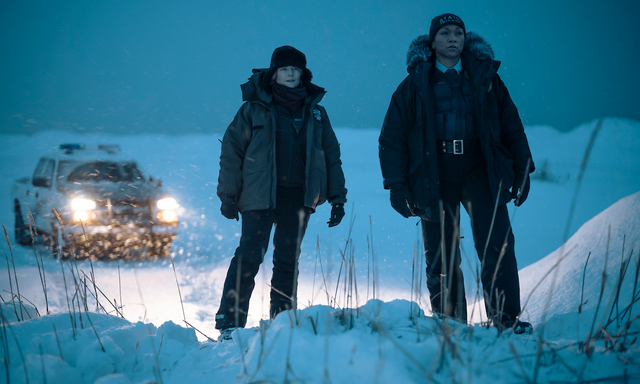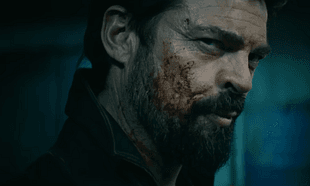Given how relatively hit-and-miss 'True Detective' has been in its three seasons, adding a subtitle to this latest season feels like an admission.
For all the vaunted glory of the first season, subsequent seasons have never been able to recapture its magic. The second season was a confusing mess with Vince Vaughn trying to wrap himself around some terrible dialogue, while Colin Farrell's scumbag moustache phase was in full flight as Rachel McAdams and Taylor Kitsch did some sterling but unnoticed work. The third season was better, but again, structural problems and twisted timelines sought to undermine what could have been a return to form.
With 'Night Country', the slate is wiped clean and then some. Nic Pizzolatto is out, Issa Lopez is in. The previous showrunner serves only in the capacity of Executive Producer, as this is very much Lopez's show from the get-go. What's intriguing about 'Night Country' is that while the previous seasons flirted on the edges with the horror genre, much of what makes 'Night Country' so appealing is how it fully wraps itself in the genre. It's set in the frozen wastelands of Alaska, and there's a prominent DVD copy of 'The Thing' on the shelves of the abandoned research station - and that's only the first episode. As the story progresses, the town of Ennis itself begins to take on a supernatural form as the dead reappear at key moments. If that wasn't enough, the spiral symbol that featured in the first season reappears - on the forehead of a frozen, naked body found out in the middle of the tundra.
If the first season was about bad men out in the wilds and how the world needs them, but eventually doesn't, 'Night Country' is about how far people will go to escape their pains. As you'd expect with a 'True Detective' story, there's a lot of psychological complexities at work, and that's before it goes into the murders of Native women that is largely overlooked and ignored - a topic that's come up before in the likes of Taylor Sheridan's 'Wind River'. As well as this, 'Night Country' delves into the idea of exploitation - whether it be the massive corporation that's mining just outside of Ennis, or how the women in 'Night Country' find themselves marginalised and ignored by the wider systems at work. The show could have easily approached this in a high-handed, preachy manner, but there's much more subtletly and nuanced gained by placing all of this inside a tightly written mystery story.
Jodie Foster is always a commanding presence on screen, yet what is essential to the DNA of 'True Detective' is that the leads are able to effectively share the same space and screentime without dominating the other. Kali Reis has more than enough physical presence to hold her own against Foster. After all, she's a former WBC World Middleweight boxing champion, and a Golden Gloves winner. Yet beyond the physical, Reis has a real edge to her performance that marks her out as a talent to watch for the future. As for Foster, there's a wiry toughness in how she plays the role that hasn't really been seen before. Even in works like 'Panic Room' or 'The Brave One', there was a vulnerability that is here replaced by a low hum of rage and anguish.
All this said, 'Night Country' does trace an all-too-familiar path that resolves itself in too tidy a fashion for a story. Given how intricately woven the characters are, with great supporting turns from the likes of Fiona Shaw and John Hawkes, it seems a shame and a waste to to wrap the whole thing up in such a straightforward way. It may be that the overwrought nature of the previous seasons argued for a more simple ending, but nevertheless, 'Night Country' has plenty to keep you invested and watching religiously until then.
'True Detective: Night Country' airs on Sky Atlantic on Mondays at 9PM.





















































































